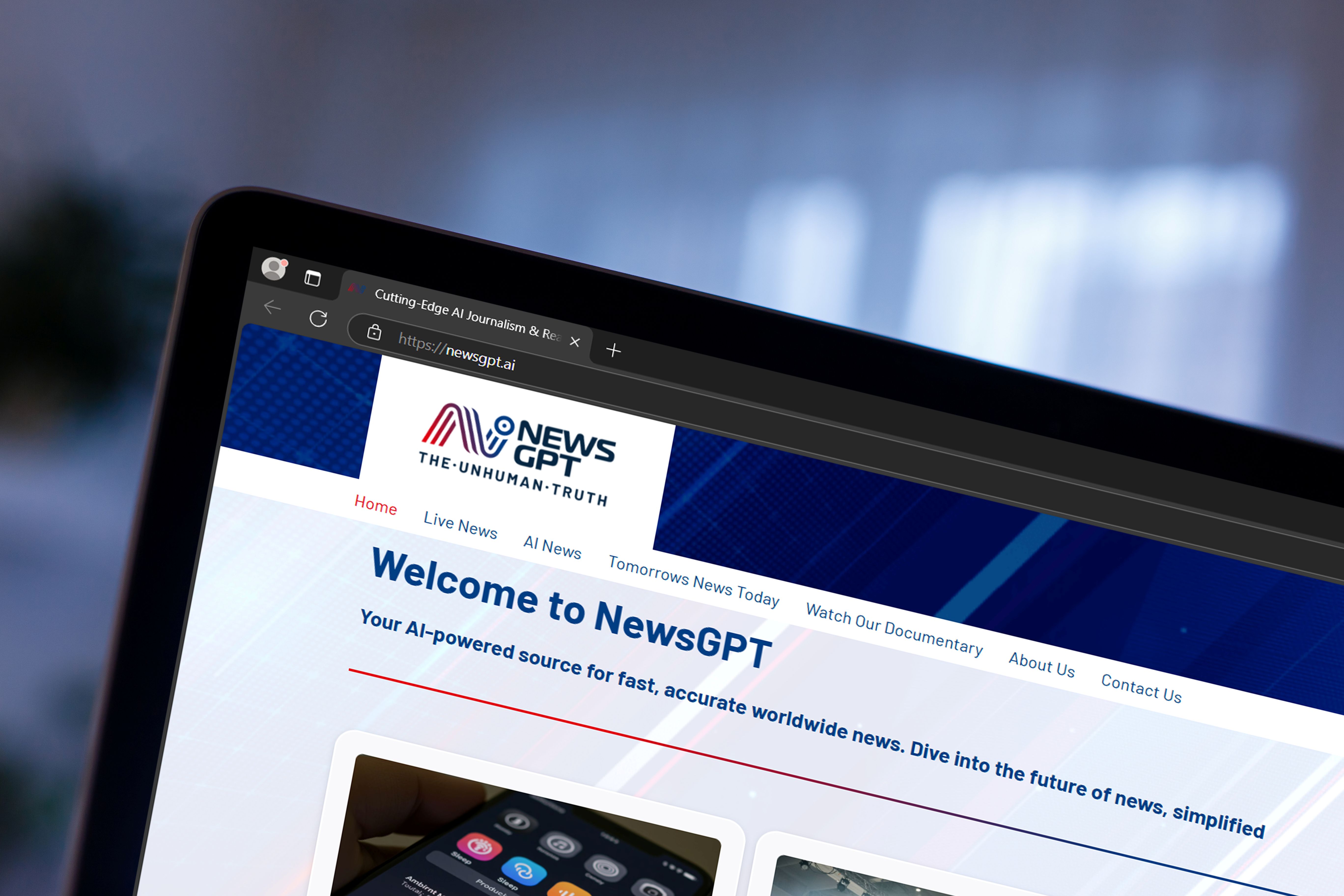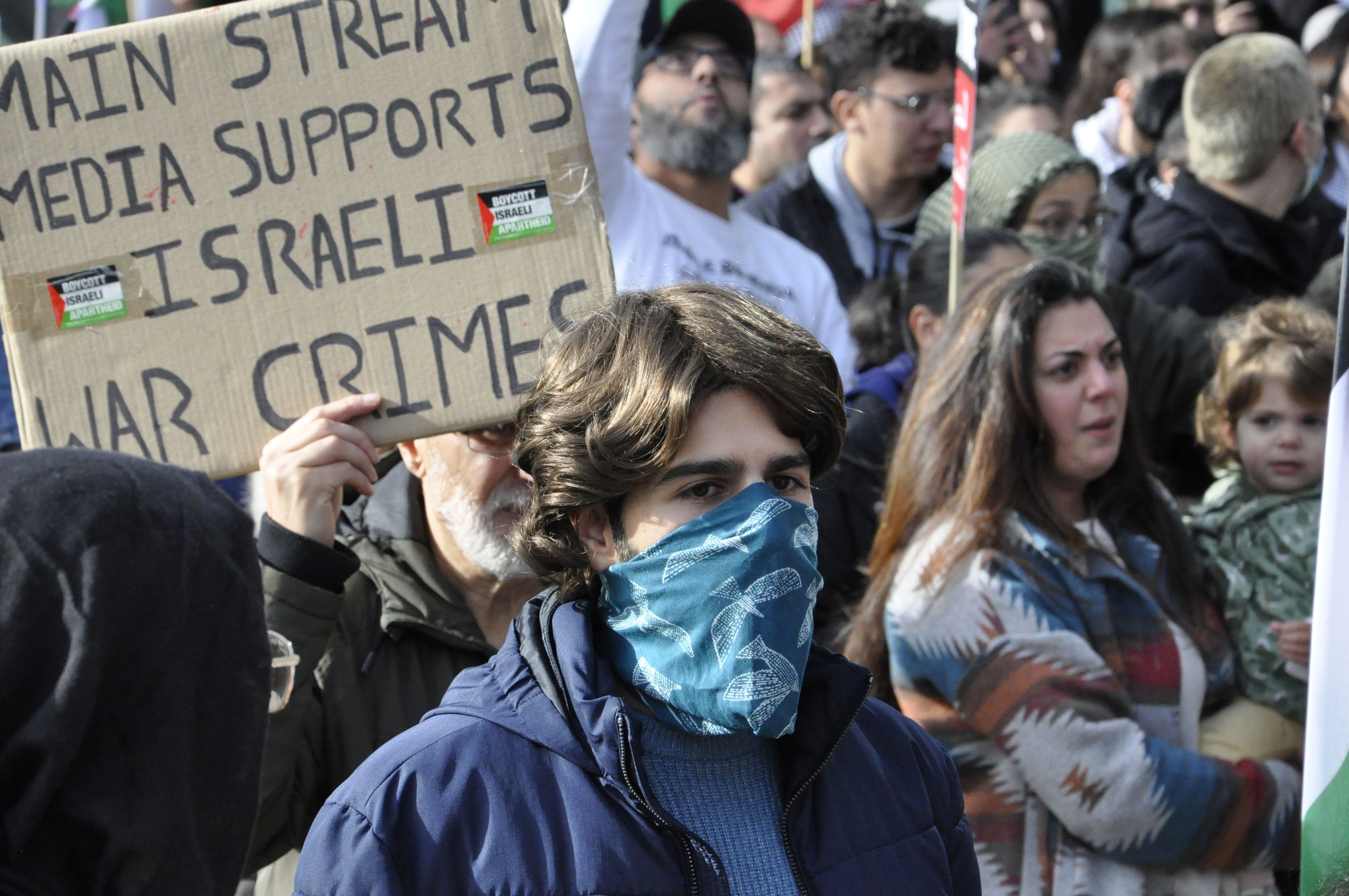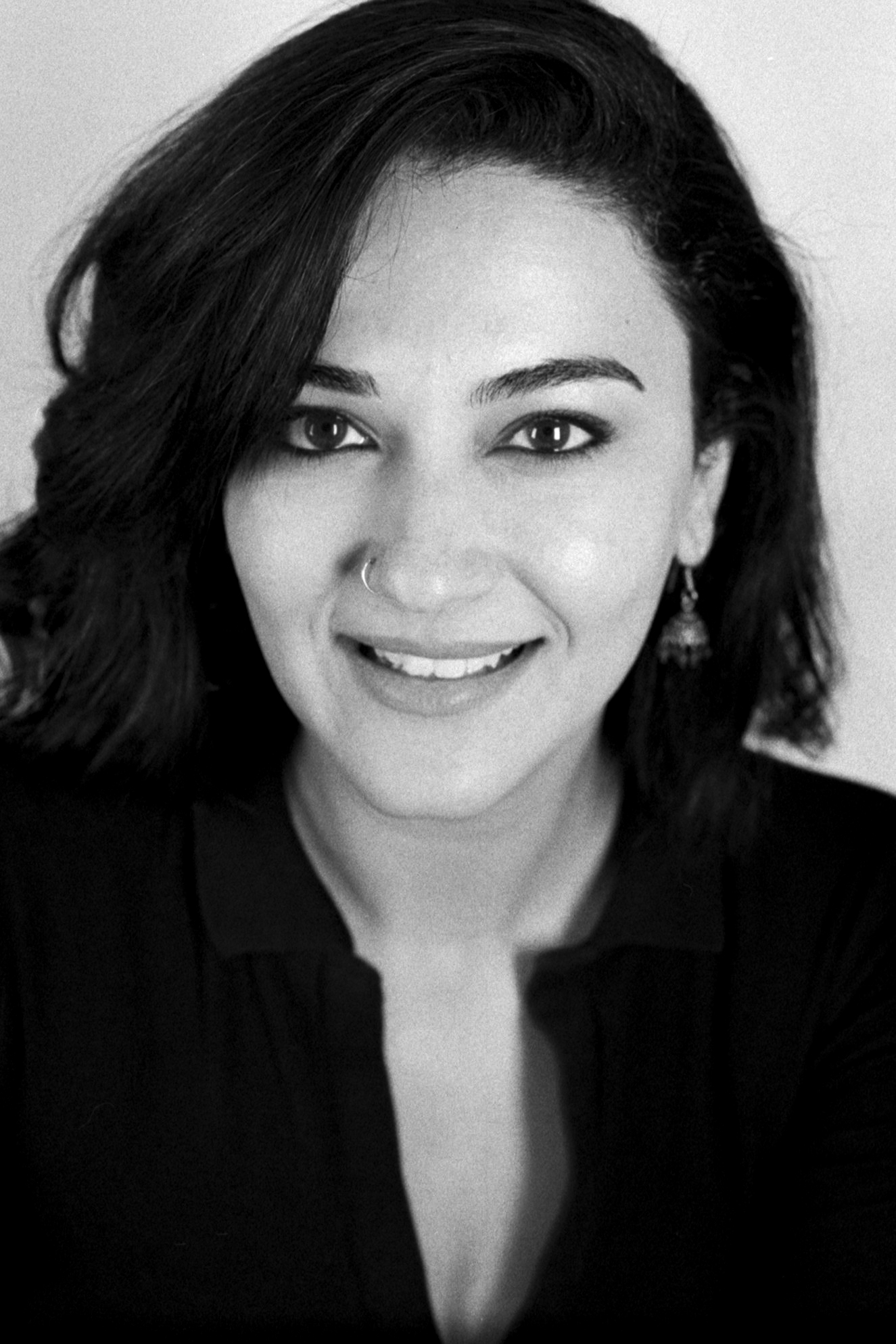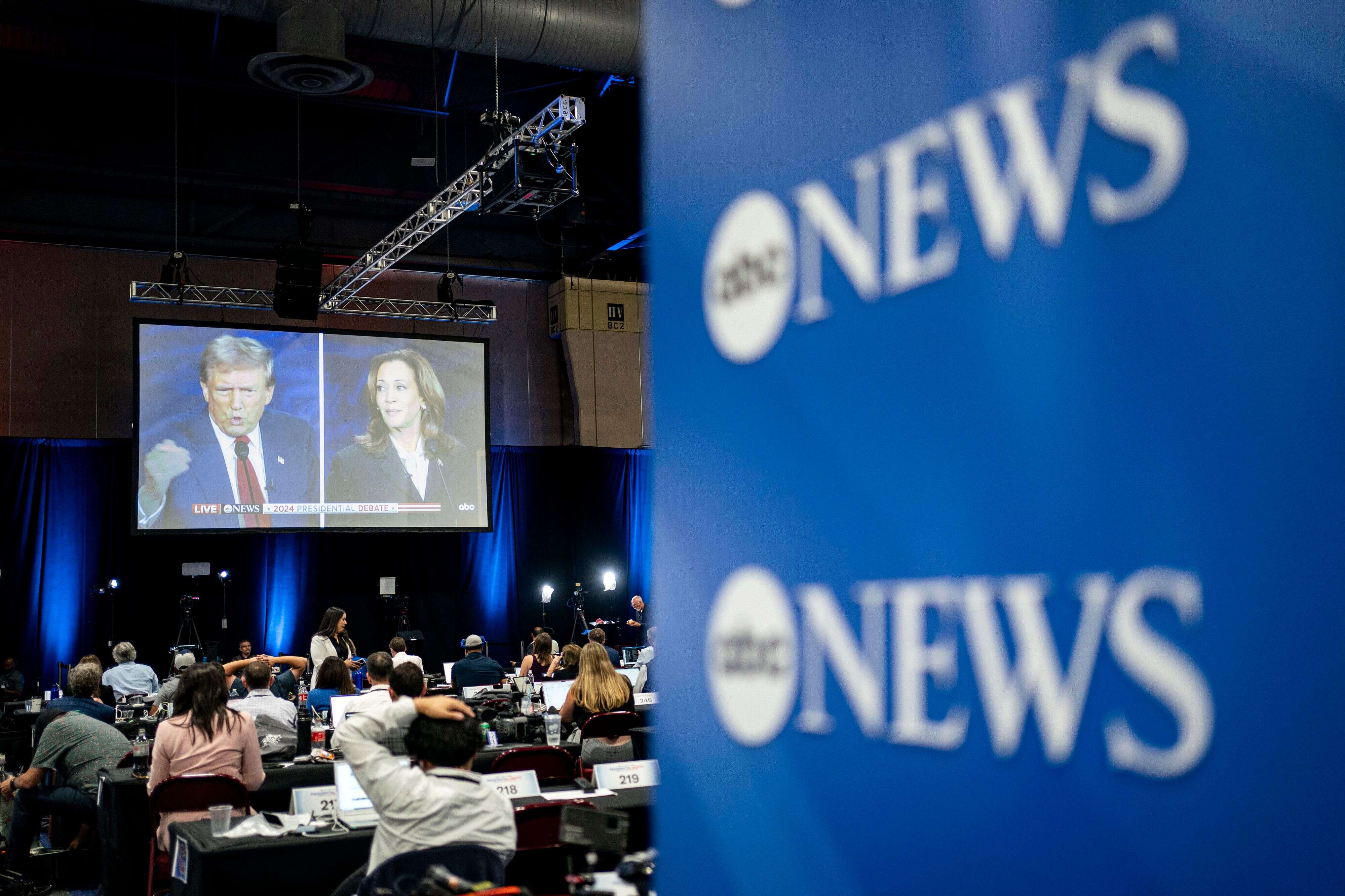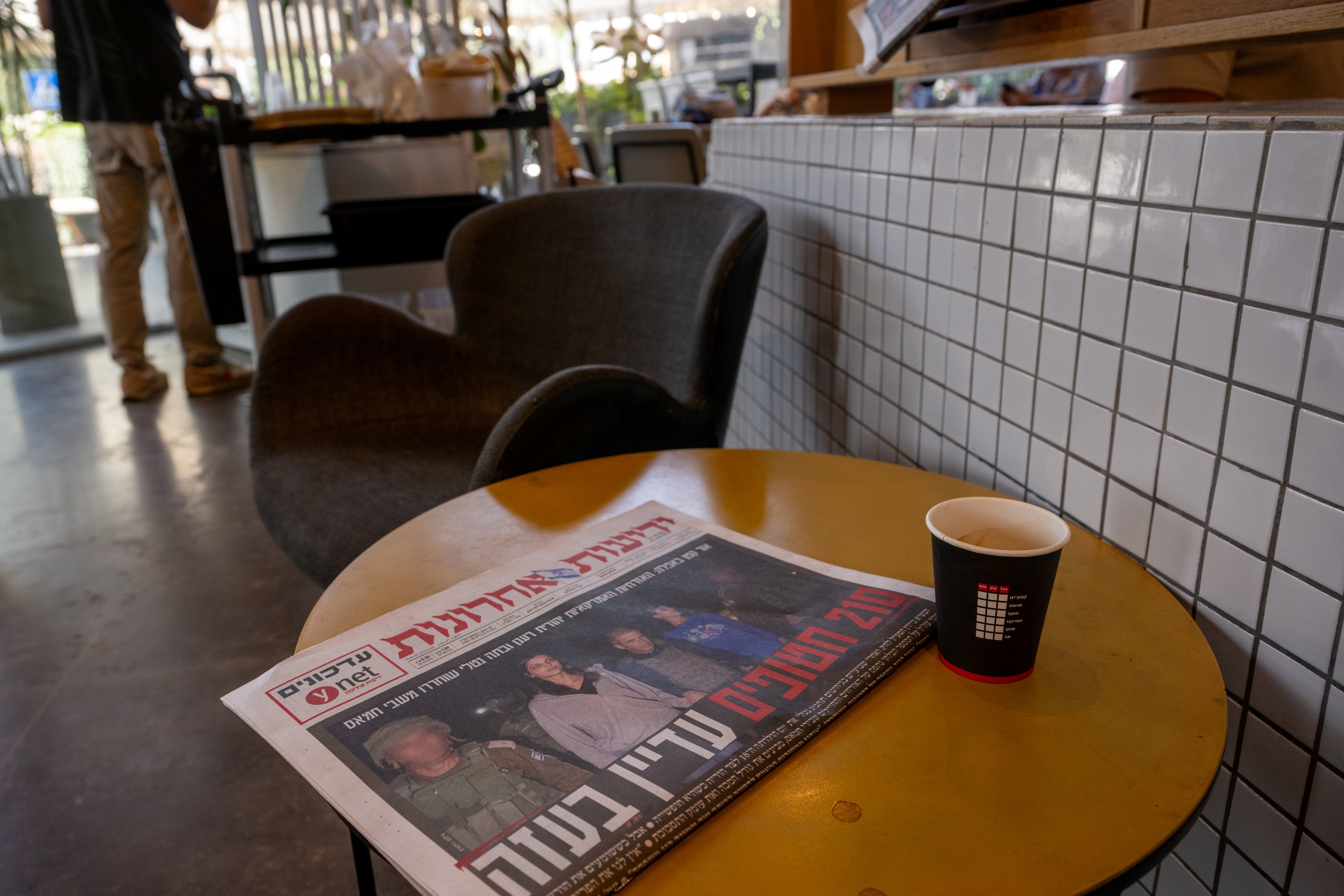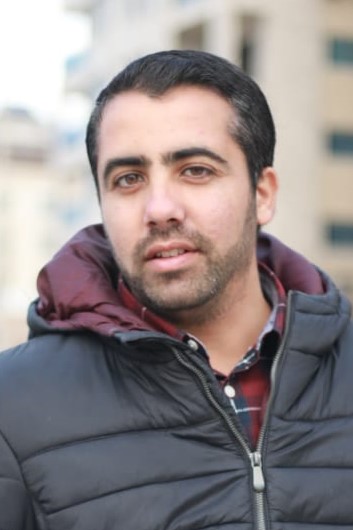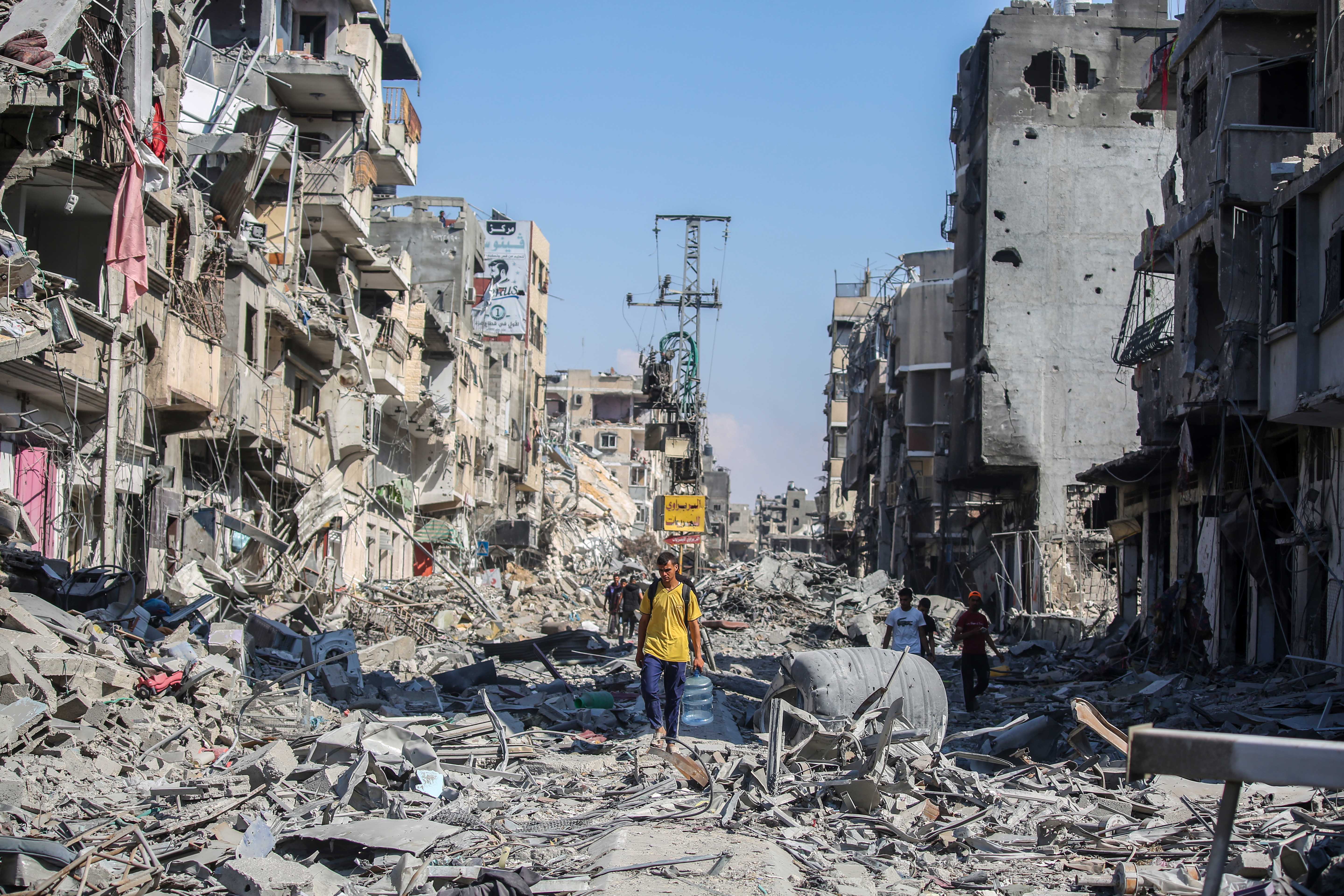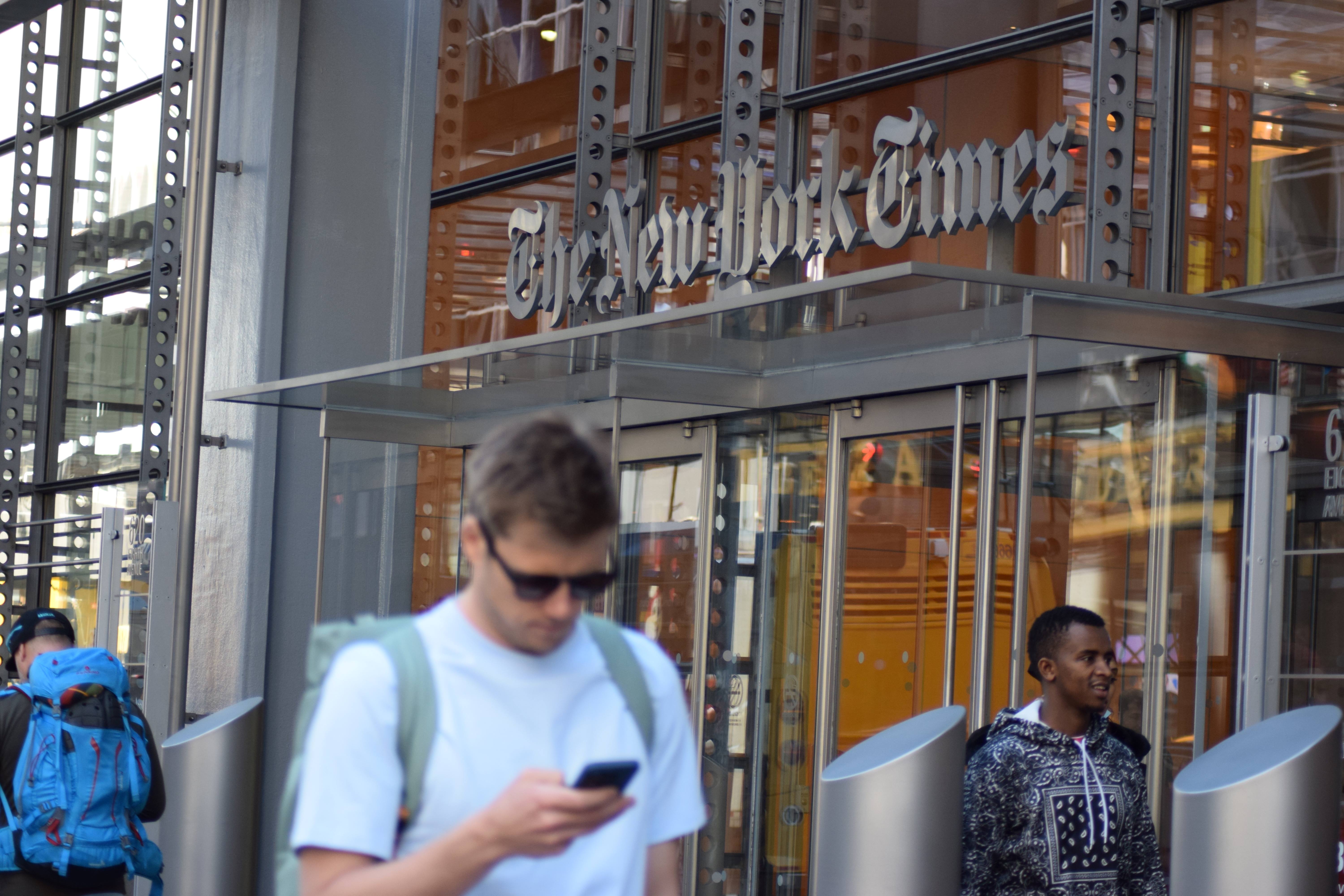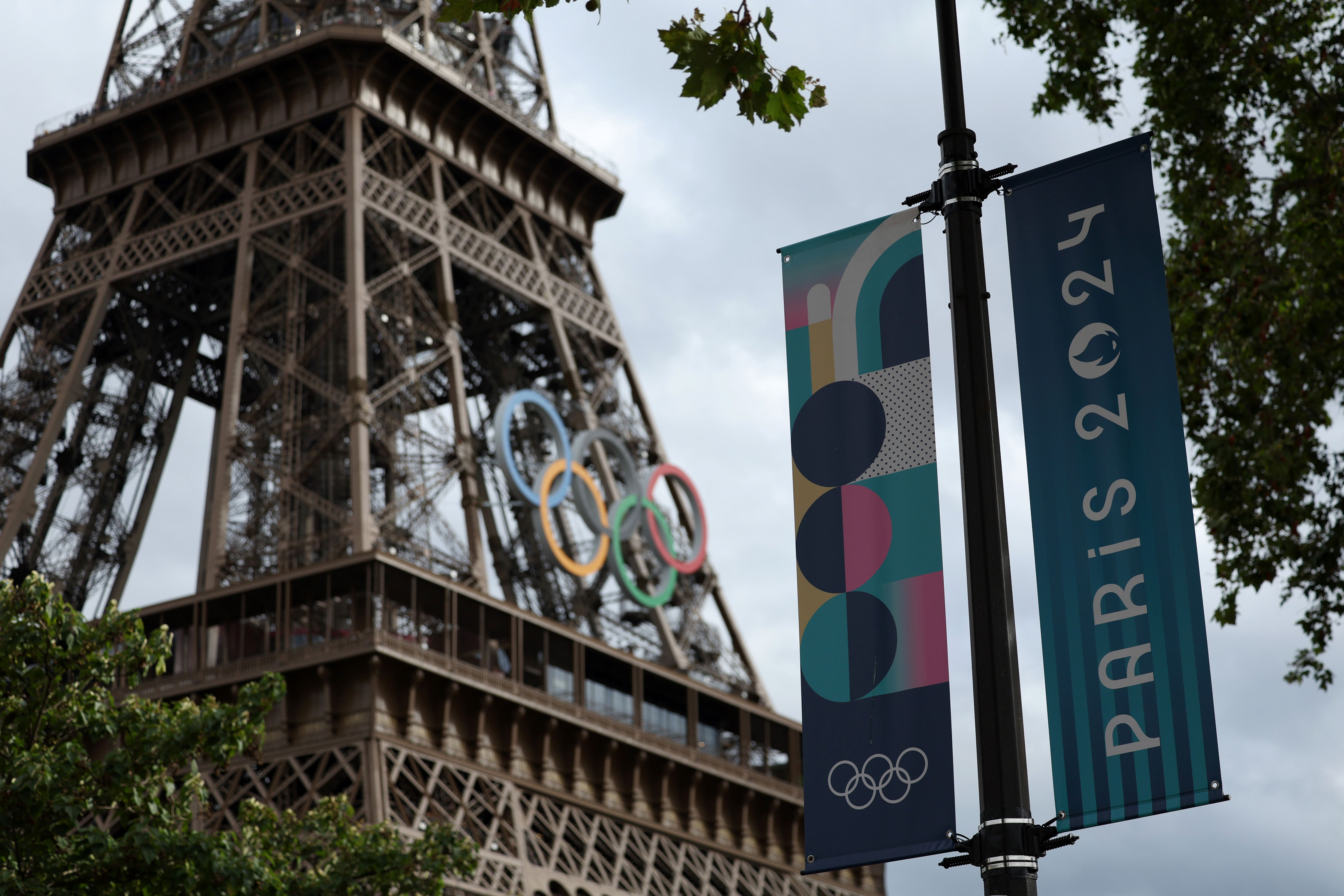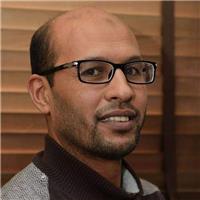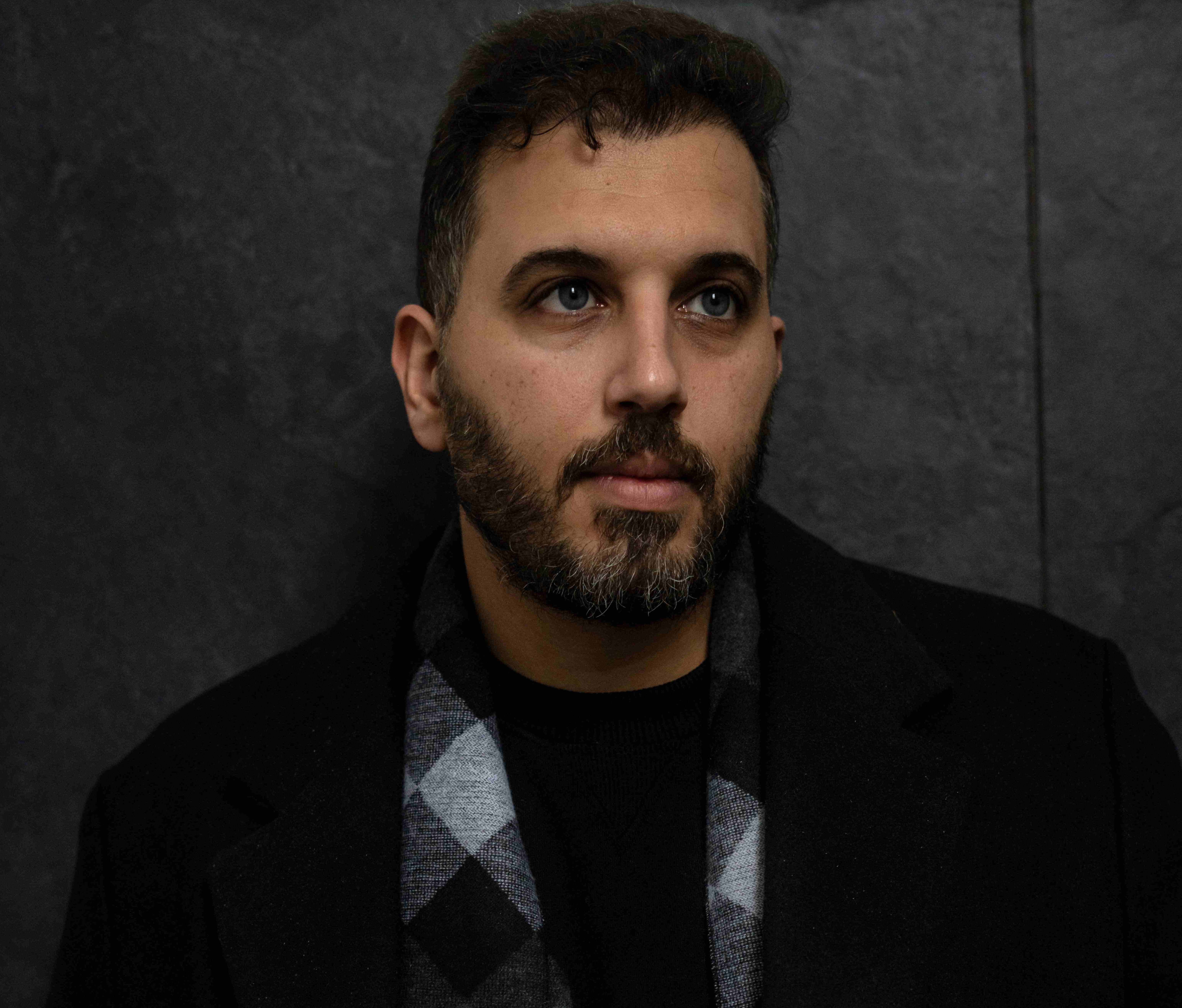Developing as a young journalist without jeopardizing your morals has become incredibly difficult.
While independent journalism is evolving, offering alternative narratives to those spread by the mainstream media machine, the status of the newsroom retains a certain appeal. With bills to pay and personal aspirations to meet, we are discouraged from questioning the ramifications of our words.
It is easy enough to convince yourself that being on the inside is the only way to change things, but as Palestinian journalist Mohammed El-Kurd so incisively wrote, “Once we have protection, we’ll want to stay protected. And once we get some money, we’ll want more and more wealth. When we go back to ourselves after a long career and look deep in our closets for the skin we once wore, we find it shriveled and discarded, foreign to us as we are foreign to it. One could say it is a strategy, but we know what the master’s tools will not do.”
Such thoughts had been brewing during my short time as an intern-turned-freelancer at CNN International (CNNi). When I finally resigned in October last year, they had engulfed me entirely.
I maintain a great deal of respect for many of my former colleagues at CNNi, where coverage of the genocide has been significantly less biased than on CNN domestic, albeit far from innocent, and much more for the Palestinian experts and activists I booked for interviews. My resignation letter highlighted that “the pro-Israeli rhetoric at CNN/CNNi is far too deep-rooted and unwilling to change fast enough to stop what is now a genocide of the Palestinian people.”
That genocide is now recognized around the world, including by the governments of Colombia and South Africa. The International Criminal Court has issued arrest warrants for Israeli Prime Minister Benjamin Netanyahu and former defense minister Yoav Gallant for crimes against humanity and war crimes.
Yet CNN/CNNi continuously spreads misinformation and publishes reports that pander to the Israeli regime.
In Al Jazeera’s recent documentary, Failing Gaza: Behind the Lens of Western Media, an anonymous CNN journalist testified to this reality: “It’s very clear where we lie, regrettably. And it’s not entirely with the truth.” He continued, explaining that there was a period in which CNN journalists “couldn’t call air strikes in Gaza air strikes unless we had confirmation from the Israelis.”
Before October 7
As with the war on Palestine, internal bias began before October 7, 2023.
While at CNNi, I recall trying to book Palestinian guests and being told to send my list to the Jerusalem Bureau to be checked. What I received back was a list of almost entirely different options, half pro-Israel and half “pro-Palestine,” with many of my Palestinian suggestions replaced with liberal Israeli alternatives.
On another occasion, I wrote a guest-file for an interviewee, and put down their location as “Ramallah, Palestine.” I was immediately told to change it to “Ramallah, West Bank.”
More than 145 UN members—approximately three quarters of the 193 total—have recognized Palestine as a state, but putting the word in an internal document is apparently an overstep at CNNi.
On 20 April 2023, while I was working on CNNi’s Connect the World, anchor and correspondent Christina MacFarlane interviewed the British-Israeli Rabbi Leo Dee about the killing of his wife and two of his daughters in the occupied West Bank. She made no attempt to fact-check his claim that the men who killed them were “paid a million dollars each by the Palestinian Authority, which is funded by the Iranian regime.”
I had been responsible for managing the logistics for the interview and had flagged my concerns in that morning’s meeting.
The point was to focus on his loss and his understandable grief. But what was the plan to counteract any potentially inflammatory statements?
I was ignored.
CNN/CNNi never held Israeli guests to the same degree of scrutiny as Palestinians, nor did it expect the same standard of passivity.
In fact, one month after the original MacFarlane interview, CNN Chief International Anchor Christiane Amanpour publicly apologized to Dee for referring to the killings of his wife and daughters as a “shootout” on air. If CNN/CNNi apologized to every Palestinian for misrepresenting the killings of their loved ones, the internet would be a minefield of indignant Zionists.
Bias Intensifies
On 11 October 2023, just before I left, CNN Anchor and Senior National Correspondent Sara Sidner misreported the baseless and now disproven story, “confirmed by the [Israeli] Prime Minister’s Office,” that Hamas beheaded babies on 7 October. CNN reporter Hadas Gold contributed on air, suggesting that the contemporary “rhetoric” of the Israeli government and military was the product of such “atrocities.”
Those beheadings never occurred, but by the time Sidner issued her apology, the story had already spread.
In November 2023, a report from CNN International Diplomatic Editor Nic Robertson simply accepted Israeli army spokesperson Daniel Hagari’s claim that a document, written on the wall of Gaza’s recently bombarded Rantisi children’s hospital, was “a guarding list” for watching over Israeli captives. Robertson ignored an alert from a Palestinian colleague that it was not a roster, but a calendar listing the days of the week and published the misleading report (this part of the report has since been removed on CNN.com but is shown in Al Jazeera’s investigation).
Nearly a year later, in October 2024, CNN published a report about Israeli soldiers “suffering from PTSD or mental illnesses caused by trauma during the war.” References in the article to two soldiers bulldozing Palestinian bodies come across as a secondary concern.
The article was heavily criticized on social media, reading for many as a sympathy piece in which references to gruesome acts against Palestinians are largely framed as traumatizing ordeals for Israeli men. It also relies almost exclusively on interviews with current and former Israeli soldiers, an Israeli military medic, family members, and the Israeli government.
Eliran Mizrahi, an Israeli reservist profiled in the report, who was so “traumatized by what he had witnessed” that he took his own life, appeared on Israeli television just a few months before, bragging about destroying 5,000 Palestinian homes. His trauma is oddly lifted up over the deaths of hundreds of Palestinians—run over by the pair—that his co-driver indicates were all “terrorists.”
Beyond these blatant lies and omissions, the devil is in the detail. The likes of CNN, the BBC, the Associated Press, Reuters, The New York Times and The Washington Post continue to categorize articles about Israel’s genocide in Palestine under the sub-section “Israel-Hamas war” or “Israel-Gaza war” rather than the much more factual “War on Gaza.”
Despite the Consequences
Of course, there are still some brilliant journalists at CNN/CNNi. The likes of International Correspondent Nada Bashir and global breaking news writer Sana Noor Haq conduct reporting which consistently addresses Israeli violence and emphasizes Palestinian suffering.
Other more senior anchors and reporters have also been increasingly critical. According to a leaked recording published by The Intercept in March, Christiane Amanpour described “real distress” over “changing copy, double standards and all the rest.”
Nevertheless, what I witnessed in my time at CNNi, before and after 7 October, was enough for me to leave. As Israel’s genocide rages on, fueled and funded by our trigger-happy governments and money-grabbing institutions, we journalists have a responsibility to question our involvement and our capacity to influence its continuation.
However difficult it may be to abandon the comforts of the newsroom, there is nothing more comforting than the knowledge you walked away.
Leaving CNNi was not an act of bravery, nor did it impact the coverage (I was only a lowly freelancer and recently graduated intern after all), but it changed who I became.
If not for the incredible Palestinian journalists and witnesses who shared their stories with us on social media, or the brilliant guests I worked with at CNNi—from Issa Amro, the Hebron-based human rights defender, to Nour Odeh, political analyst and former Al Jazeera correspondent—I would never have left. Their commitment to the representation of Palestinian narratives forced me to recognize a lack of commitment by CNN/CNNi.
The shortage of Palestinian guests and overt reliance on Israeli and Western sources was already enabling a misinformation campaign that was certain to intensify in the months ahead.
We should all be grateful for the bravery of the Palestinian people, but that gratitude is inseparable from a responsibility to resist in their names. For me, beyond protesting and fundraising, this commitment is bound to a continuous criticism of bias in the mainstream press.
To constantly question what we are told and how we are told it, has become the essence of my development as a young journalist, regardless of careerist aspirations.
As Mohammed El-Kurd wrote, “We are required, as writers and journalists, to have a backbone, to refuse, to take our reporting beyond the politics of appeal, despite the consequences—for they do not compare to life under occupation—and because the consequences (recrimination, censorship, ostracization, even murder) should terrify us into action. Fear should make our voices bigger and more resounding. One seldom survives if they shrink themselves when confronted with a black bear.”
This article was originally published in Electronic Intifada on December 15, 2024.













